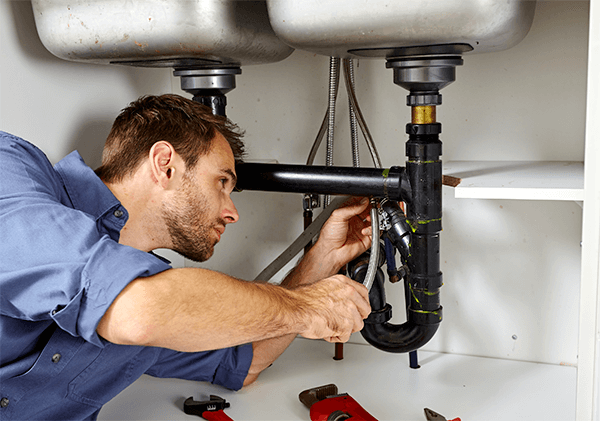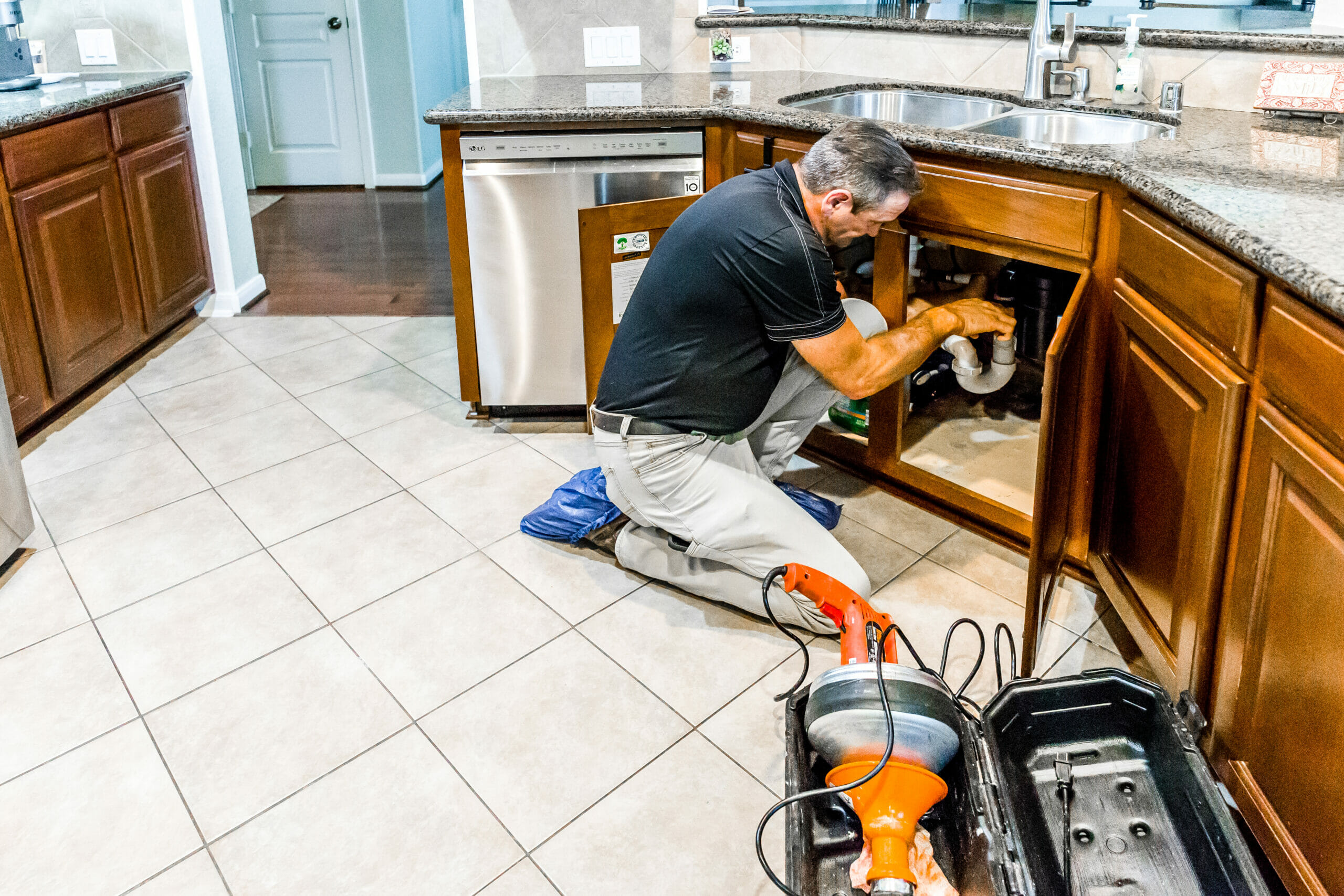We've come across this post on Plumbing Issues in Older Properties and How to Fix Them below on the internet and felt it made good sense to quickly share it with you on my blog.

Older homes commonly include beauty, character, and background, however they can likewise bring a host of plumbing concerns. Whether you're dealing with maturing pipelines, low tide stress, or leakages, recognizing exactly how to attend to these common problems is essential to maintaining a risk-free and practical home. In this overview, we'll explore the normal plumbing difficulties encountered by older homes and give useful services to keep your pipes in leading shape.
Recognizing Usual Plumbing Issues
Aging Pipelines
Among one of the most usual concerns in older homes is aging pipes. Relying on the period in which your home was constructed, the pipelines may be made from products that have worn away with time, such as galvanized steel, cast iron, and even lead. These materials can wear away, end up being fragile, or create leaks, causing water damage and prospective carcinogen.
Water Top Quality Testing
Older pipes can influence the high quality of your water. Conduct a water top quality examination to check for impurities such as lead, corrosion, or other impurities that may be presented by maturing pipes.
Solutions for Typical Pipes Issues
Changing Aging Pipelines
If your home has old, deteriorating pipes, think about changing them with modern-day materials like copper or PEX. This can be a considerable investment, however it will certainly stop future problems and improve the safety and security and reliability of your pipes system.
Fixing Low Water Pressure
To deal with low tide pressure, beginning by cleansing or changing old components and removing mineral accumulation in the pipelines. If the trouble continues, it may be essential to change areas of corroded pipelines.
Fixing and Replacing Dripping Pipelines
For tiny leaks, you can utilize pipe clamps or epoxy putty as a momentary solution. However, it's finest to replace dripping pipelines completely to stay clear of more damage.
Upgrading Components
Updating old fixtures to modern, water-efficient models can boost your home's plumbing performance and reduce water usage. Search for components with the WaterSense label for the best performance.
Managing Pipe Deterioration
If your pipes are rusted, changing them with corrosion-resistant materials like copper, PVC, or PEX is the very best service. Normal evaluations and water quality upkeep can help avoid even more rust.
Low Tide Stress
If you're experiencing low water pressure, it could be because of natural resources, rust inside the pipes, or old fixtures that are no more working efficiently. This can be a significant inconvenience, especially in locations like showers and sinks.
Dripping Pipes
Leakages are another frequent concern in older homes, usually triggered by corroded or damaged pipelines. Also small leakages can bring about significant water damage, mold growth, and raised water costs if not addressed without delay.
Obsolete Components
Outdated plumbing fixtures such as faucets, bathrooms, and showerheads not only look old yet may also be much less efficient, vulnerable to leakages, or incompatible with modern plumbing criteria.
Pipe Corrosion
Deterioration is a typical issue in older pipes, particularly those made from galvanized steel or actors iron. Corroded pipelines can limit water flow, create staining, and ultimately result in leakages or pipeline ruptureds.
Analyzing the Problem of Your Pipes
Examining Visible Pipelines
Beginning by checking any kind of visible pipelines in your home, such as those in cellars, crawl spaces, or under sinks. Try to find signs of deterioration, leaks, or corrosion, which can indicate underlying concerns.
Checking for Leaks
Check for leaks by evaluating locations around faucets, bathrooms, and under sinks. You can additionally monitor your water meter before and after a duration of no water use to identify covert leakages.
When to Call a Specialist
While some plumbing problems can be taken care of with do it yourself solutions, there are times when it's ideal to hire an expert. If you're dealing with major leaks, substantial deterioration, or are uncertain about the condition of your pipelines, a certified plumbing technician can provide professional evaluation and fixing.
Preventive Upkeep Tips
Regular Evaluations
Routinely inspect your pipes system for indicators of damage. Capturing concerns early can prevent costly repair work down the line.
Water Stress Law
Guarantee your water pressure is within the recommended range to avoid stressing your pipes and fixtures. A plumbing technician can mount a pressure regulator if needed.
Water Top Quality Upkeep
Install water filters or softeners if your water quality is poor. This can safeguard your pipes and fixtures from damage triggered by difficult water or impurities.
Proactive Pipe Substitute
If your home has very old pipes, think about positive substitute prior to significant concerns occur. This can save you from emergency situation repair services and water damage.
Conclusion
Managing pipes concerns in older homes requires a combination of caution, preventive upkeep, and timely upgrades. By understanding the typical difficulties and recognizing when to look for expert help, you can guarantee your pipes system stays functional and trusted for several years ahead.
Common Plumbing Issues in Older Homes and How to Fix Them
Owning an older home in Australia comes with its unique charm and a set of challenges, especially when it comes to plumbing. The Sunshine Coast has many older properties that can harbour plumbing problems that aren t just inconvenient but potentially costly. Here s a look at some common plumbing issues in older homes and expert advice on how to handle them.
Outdated Piping Materials
Many older homes were built with galvanised steel, cast iron, or even lead pipes, materials that are far from ideal by today s standards. Galvanised pipes are prone to corrosion and clogging, while lead pipes pose serious health risks.
How to Fix:
Replacing old pipes is a job for a professional. Upgrading to copper or PVC piping not only enhances water quality and flow but also increases the property s safety and value. If you suspect your home has outdated materials, a licensed plumber can conduct a thorough inspection and recommend the best course of action.
Corrosion and Pipe Degradation
Over time, exposure to water and minerals can cause pipes to corrode, leading to leaks, bursts, and water contamination. Corrosion is especially common in homes over 50 years old.
How to Fix:
Regular inspections can catch early signs of corrosion. If corrosion is found, the affected section of piping often needs to be replaced. For homes with extensive corrosion, a complete plumbing overhaul might be necessary. It s crucial to consult with a plumbing expert to understand the extent of the issue.
Tree Root Intrusion
Older neighbourhoods usually have mature trees whose roots can intrude into pipe lines, causing blockages or damage. This is particularly problematic for sewer lines, where roots seek out water sources.
How to Fix:
A plumber can use a specialised camera to inspect sewer lines for root intrusion. If roots are a problem, methods like root cutting or hydro-jetting can clear the obstruction. In severe cases, part of the pipe may need replacing. Consider root barriers around the piping to prevent future issues.
Inadequate Water Pressure
Low water pressure in older homes can be due to various factors, including corroded water lines, sediment build-up in pipes, or outdated fixtures.
How to Fix:
First, check if the low pressure is isolated to one area or throughout the house. Replacing old fixtures can sometimes resolve the issue. However, if the problem is more widespread, it might be due to sediment or corrosion. Flushing the system or replacing the affected pipes usually restores normal pressure. Again, a professional assessment is advisable.
Outdated Fixtures
Older homes often feature fixtures that are not only visually dated but functionally inefficient. This includes everything from toilets and taps to showerheads and washing machine hoses.
How to Fix:
Updating these fixtures can improve both water efficiency and the aesthetic appeal of your home. Modern fixtures are designed to conserve water, which can significantly reduce your water bill and lessen your environmental impact.
Conclusion
Maintaining the plumbing in an older home requires a proactive approach. Regular checks and updates are key to preserving these beautiful properties. If you re facing plumbing issues in your older home, it s best to call on experienced professionals like Green & Gold Plumbing & Gas. With the right expertise, even the most daunting plumbing problems can be resolved, ensuring that your home s character is maintained while its functionality is enhanced.
https://gandgplumbing.com.au/common-plumbing-issues-in-older-homes-and-how-to-fix-them/

I am very occupied with Plumbing Issues in Older Properties and How to Fix Them and I really hope you liked the entire page. So long as you enjoyed our post kindly remember to share it. Bless you for being here. Come back soon.
Click Here